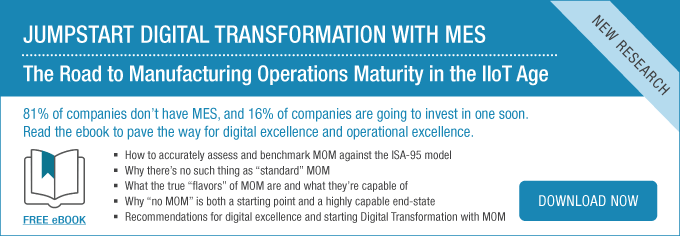The #MondayMusings Industrial Transformation blog series provides insight and analysis for executives from the previous week’s briefings, events, and publications @LNSResearch.
Dassault Systèmes (3DS), a leading European software company providing 3D design and engineering software recently held its two-day event, 3DEXPERIENCE FORUM in Vélizy, France. The event gathered industry analysts and shared the company’s vision with deep dives into products and industries. As always, Bernard Charlès, Deputy Chairman and CEO of 3DS, gave the opening address and update about 3DS strategy. Bernard was in top form, starting with a moving and personal tribute to the late Serge Dassault, Chairman, and CEO of Dassault Group. Serge supported Bernard in his long-term view of how 3DS should develop, and helped 3DS become the innovative and successful company it is today.
Soaring High but Firmly Rooted
3DS started as a software company supporting its parent, Dassault in aircraft design. It has grown to be a leading player in product lifecycle management (PLM), computer-aided design (CAD), and manufacturing operations management (MOM), while still preserving its innovative heritage. 3DS maintains a long-term focus on industries, in fact, industries are a critical piece of 3DS’ DNA and its go-to-market strategy. Starting with four core industries – transportation and mobility, aerospace and defense, business services, and industrial equipment, 3DS has diversified to eight industries and has the freedom to go in new directions. Some of this growth has been organic, while some has been through acquisitions such as the June 2018 acquisition of CentricSoftware in retail.
3DS’s targeted view on industry, broad solutions, and 3D Experience platform have allowed it to launch enumerated solutions aligned to industry needs from design and simulation of products and production capabilities to new product introductions (NPI). These solutions are cross-functional – marketing to sales to engineering and cross-technology, include templates and built-in knowledge of the process and go far beyond configuration, thus enabling the customers to solve a specific problem rapidly.
3DS doesn’t consider “Digital Transformation” a suitable moniker for the revolution technology is bringing in the manufacturing world, they like to call it “Industrial Renaissance.” Unlike other technology providers 3DS sees people and their skills as fundamental to this renaissance; rather than technology just replacing them. It is in support of this belief, 3DS launched a fledgling learning program to provide lifelong adaptive training and certification to its workforce.
The traditional businesses such as CATIA, a 3D design software, and DELMIA, an industrial operations software are still growing with an emphasis on moving existing customers to the 3DEXPERIENCE platform.
Real World Application Takes Wings
Boeing had a new target - reduce the turnaround time on new jets from eight years to four years. In 2017, 3DS signed a comprehensive agreement with Boeing to help them meet this competitive target by designing and building a corporate platform for the aircraft and spacecraft cycle. The 3DEXPERIENCE Platform including POWER’BY, a functionality allowing users to bring in CATIA and non-CATIA models natively into the 3DEXPERIENCE platform was critical to this. The platform was used as an operating system to make 777 wings including manufacturing operations with DELMIA. This partnership also allowed Boeing to use 3DS’s Marketplace for suppliers, internal Boeing assets, and after sales asset management.
LNS Takeaways
It is always an exciting learning experience to attend Dassault Systèmes forums and spend some time with the leadership. Highlighting wins like the Boeing deployment definitely helps to sell the company’s vision.
3DS’ strategy is different from the others in the market – it is nuanced and built to drive innovation. The strong industry focus in a powerful automation enabler. While the solutions are sophisticated they’re complex and difficult to deploy, other providers in the market can provide a comparatively easier deployment even though it may lack the full value of 3DS approach. Other areas 3DS needs to focus on are developing traditional manufacturing such as closed-loop lifecycle quality and the Marketplace, which despite its potential lacks some core capabilities required by corporate procurement agents.
The financial bottom line did take a short-term hit, but it is expected when the company is innovating. While roadblocks are aplenty, Dassault Systèmes is well on its way to becoming a leader in the Industrial Renaissance.
The blog has been co-authored with Andrew Hughes.
